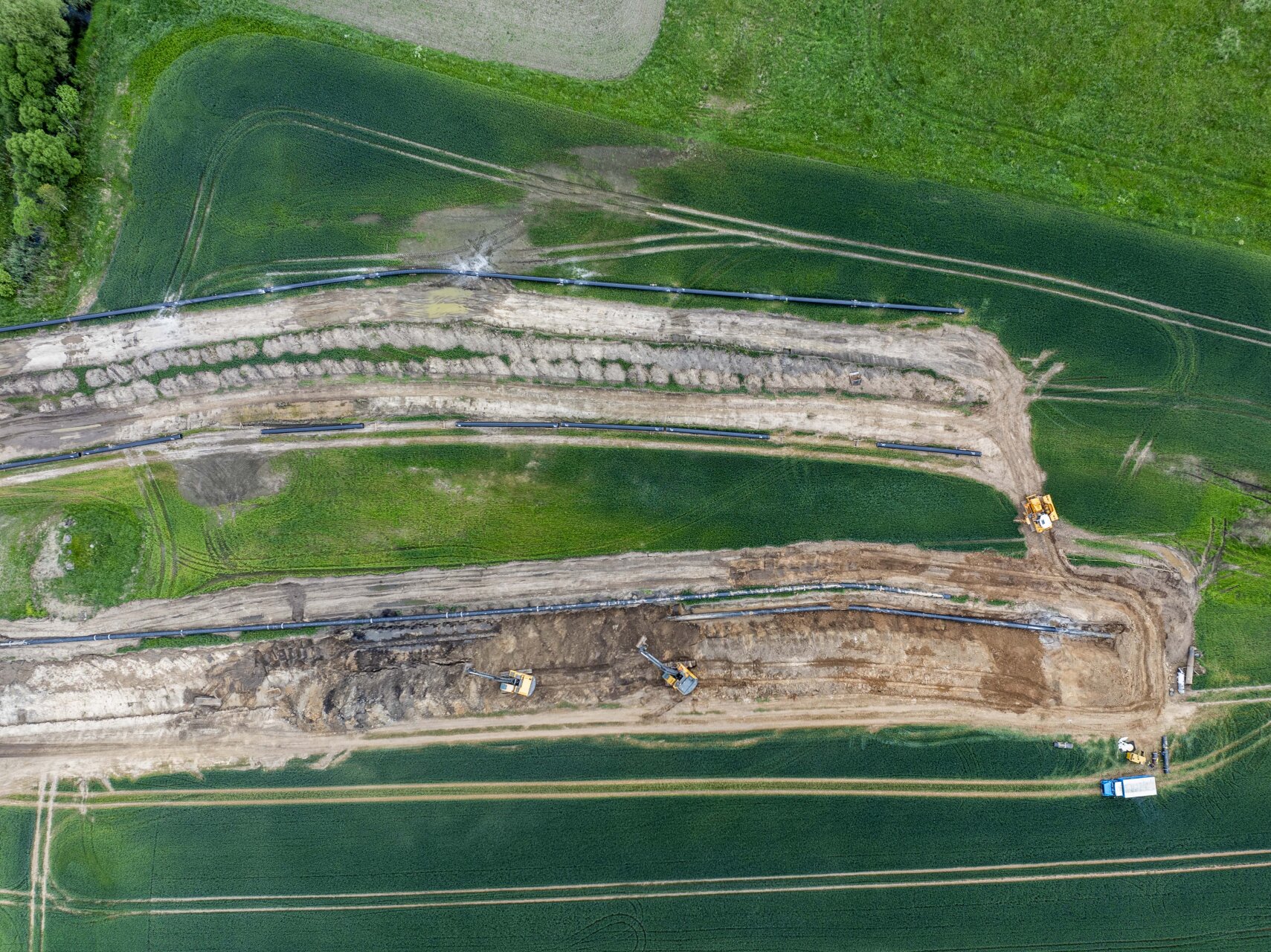
Amber Grid, the Lithuanian gas transmission system operator, generated revenues of EUR 35 million in the first half of this year. This is 18% less than in the same period last year, when revenues amounted to € 42.7 million. Most of the revenue - EUR 34.8 million - was generated by the transportation of natural gas. The decrease in the revenue level was mainly due to lower gas transport volumes.
"In the last six months, gas transportation through the transmission network operated by Amber Grid was limited due to maintenance of the regional infrastructure - the repair of the Balticconnector interconnector and the technical inspection of the Klaipėda LNG terminal. This had an impact on lower revenues, but the profitability indicator was kept at a positive level due to lower technological costs incurred at the same time," says Gytis Fominas, CFO of Amber Grid.
Amber Grid's net profit for the first half of 2024 was EUR 3.4 million or 3.6 times lower than in the first half of 2023 (EUR 12.6 million). The lower profit is due to the fact that the result for the first half of 2023 was significantly affected by the sale of shares in the subsidiary GET Baltic.
Adjusted EBITDA (earnings before interest, tax, depreciation and amortisation) amounted to EUR 13.8 million in the first half of 2024, compared to EUR 12.5 million in the same period of 2023. The increase was due to the higher regulated return on investment established by NERC in 2024. In the first half of 2024, almost EUR 3 million was invested in the network through gas transmission infrastructure investment projects.
Amber Grid's operating costs amounted to EUR 23.1 million in the first half of this year, down by a third compared with the corresponding period in 2023. This change is due to lower gas prices and lower gas costs.
Gas transport volumes for the first half of 2024
Consumption. In the first half of 2024, Lithuania consumed 9.2 terawatt hours (TWh) of gas, 46% more than in the first half of 2023, when the country's gas demand was 6.3 TWh. Lithuania's gas demand increased due to cooler winter weather than last year, power generation and lower gas prices on the market.
Gas transportation. In January-June 2024, a total of 13.4 TWh of gas was transported through the Lithuanian gas transmission system, excluding transit to the Kaliningrad region. This is 28.9% less than in the same period last year, when 18.8 TWh of gas was transported to Lithuania. The lower gas transport was mainly due to the fact that the Balticconector pipeline between Estonia and Finland was not operational until the end of April this year. As a result, gas supplies to Finland were not organised via the Lithuanian gas transmission system, but via the LNG terminal in Finland. In addition, the LNG terminal in Klaipėda was closed for more than a month for inspection.
Exports. 1.1 TWh of gas was transported to Europe through the GIPL pipeline connecting Lithuania and Poland. 2.9 TWh of gas was transported via the Lithuanian-Latvian interconnector for the needs of Latvia and Estonia and for storage in the Inčukalnis underground gas storage facility.
Imports. The Klaipėda LNG terminal supplied 69.2% (9.2 TWh) of the total gas injected into the system to Lithuania and the other Baltic States. Flows from Latvia to Lithuania accounted for 22.9% (3.1 TWh), 7.5% (1 TWh) from Poland and 56 GWh of biomethane from biogas producers was injected into the system.